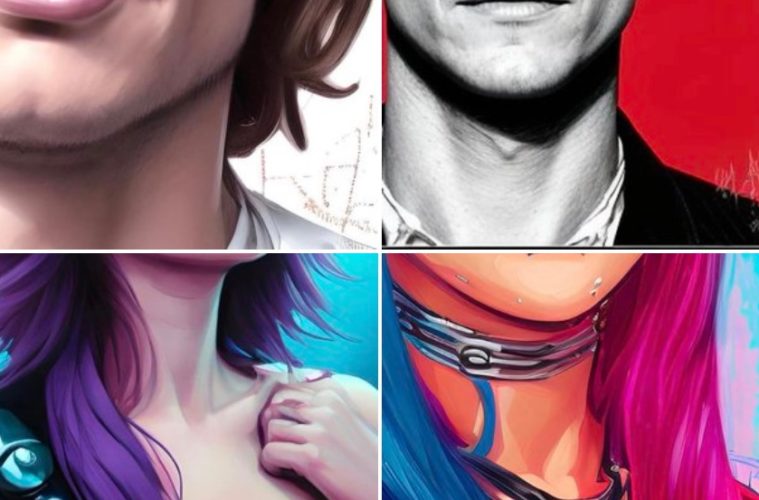If you’ve been anywhere on social media in the past week, you’ve likely come across (and if you’re like me, been initially blown away by) people posting stunning artistic anime renditions of themselves, most of them created by Lensa, an app that creates the portraits using AI.
Like FaceApp and features and filters within social media and photo manipulation apps, the photos created by Lensa are stunning and exceedingly shareable, giving regular users a glimpse into a future where AI tools are readily available at our fingertips.
But like FaceApp, Lensa’s moment in the spotlight isn’t without controversy, as many have questioned if it’s safe to give it your pictures, as well as the larger ethical question of whether the app is stealing the creative works of established artists.
Let’s take a look at the top questions around the Lensa AI anime portrait app:
How to use Lensa
Lensa works by running on the open-source Stable Diffusion AI model that is revolutionizing the technology by providing access to incredible AI to anyone who wants it.
Lensa is available on the Apple App Store, where it’s the No. 1 Photo & Video app with a 4.6 star rating, and the Android Google Play Store, where it has a dismal 2.8 star rating.
Once downloaded, users are given different pay options, including one for about $4 and an unlimited version for $40. You are able to bypass that screen and use a 7-day free trial with limited functionality.
To start generating portraits, the tool asks you to upload 10-20 pictures of yourself — and voila — it will generate varying amount of outputs in different styles, depending on if you are using the full or free version.
Lensa safety concern: should you upload your personal pictures and data to the app? Can it be used to create NSFW nudes?
The question of safety comes from users uploading pictures of themselves. When you agree to the privacy policy and terms laid out by the app, you’re allowing your selfies to be used by Prisma Labs, the company that owns Lensa, to train its AI. Sure, you’ll be getting some cool pictures out of it, but you’re essentially paying a company to make their product better.
And who knows what they’ll eventually do with the data. Similar questions were raised when FaceApp became a viral hit in 2019. The app had users submit their photos and could make realistic transformations to make you look young or old. But privacy watchdogs raised questions about what the selfies could be used for, and the fact that the app was collecting additional data about phone usage from its users. It didn’t help that the company was based in Russia — leading the FBI to say the app and others developed in Russia are “potential counterintelligence threats.”
Prisma Labs lists its headquarters in Sunnyvale, CA, but many affiliated with the company may have Russian origins, and their original app called Prisma originally took off in Russia. That doesn’t mean the app is up to no good, and implying it could sound like were heading to a modern day Red Scare — were only noting it given the FBI previously released a blanket statement regarding data collecting Russian apps in the past.
As a separate concern, TechCrunch has reported that Lensa also allows users to create pornographic NSFW nudes, and they’re working to fix it. This opens up another area of concern — one we’ve already seen with other AI implementations like Deepfakes and Stable Diffusion generating realistic nudes and porn of people without their consent.
Does Lensa steal artists’ works? Why artists are mad about Lensa
The other concern about Lensa is the question of if images it creates are ripoffs of works created by artists. The way the AI engine works is that it takes in massive amounts of data — in this case, artists renderings — and produces images that imitate those renderings but with the visage of the user.
Many artists have cried fowl of this, with some users finding instances where the images created by the app still include the signatures of the art the image was ostensibly taken from:
I’m cropping these for privacy reasons/because I’m not trying to call out any one individual. These are all Lensa portraits where the mangled remains of an artist’s signature is still visible. That’s the remains of the signature of one of the multiple artists it stole from.
A 🧵 https://t.co/0lS4WHmQfW pic.twitter.com/7GfDXZ22s1
— Lauryn Ipsum (@LaurynIpsum) December 6, 2022
This is an ongoing question of AI, with Lensa only being a more recent and popular representation of this copyright concern.
YK Hong, who describes themself as an Anti-Oppression culture shifter, shared this video on Instagram which has since gone viral, giving a deepdive into the issues surrounding Lensa. Take a watch:
View this post on Instagram
Advertising disclosure: We may receive compensation for some of the links in our stories. Thank you for supporting LA Weekly and our advertisers.

